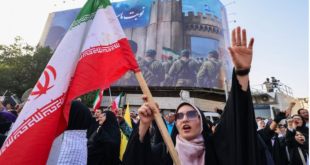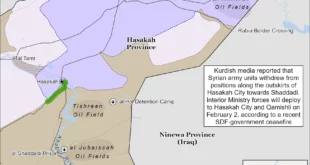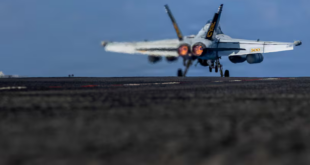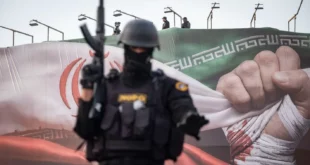 Iran and Venezuela, the producers of about 9 percent of the world’s oil, will form a $1 billion global venture for projects in countries where companies such as Royal Dutch Shell Plc or Eni SpA are facing tougher business conditions. Venezuelan-Iranian Oil & Gas Co., or VENIROGC, may be registered by the end of the year with its head office in a European country, Mohammad Ali Talebi, chief of Venezuelan operations at Iran’s state-owned Petropars Ltd., said in an interview in Tehran late yesterday.
Iran and Venezuela, the producers of about 9 percent of the world’s oil, will form a $1 billion global venture for projects in countries where companies such as Royal Dutch Shell Plc or Eni SpA are facing tougher business conditions. Venezuelan-Iranian Oil & Gas Co., or VENIROGC, may be registered by the end of the year with its head office in a European country, Mohammad Ali Talebi, chief of Venezuelan operations at Iran’s state-owned Petropars Ltd., said in an interview in Tehran late yesterday.
“The idea of the company is to become the same as Chevron, Shell or Eni,” Talebi, a VENIROGC board member, said in the Petropars headquarters. “We’ll do the international oil and gas business along the entire value chain, from production to gasoline stations.”
Iranian President Mahmoud Ahmadinejad and his Venezuelan counterpart Hugo Chavez have expanded cooperation outside the Organization of Petroleum Exporting Countries, to which they both belong. Chavez began supplying Iran with gasoline after the Islamic Republic started fuel rationing last June.
VENIROGC will be a 50-50 partnership between state-run Petroleos de Venezuela SA and Petropars. Unlike existing ventures, it will focus on oil and gas developments outside the two countries, such as in Bolivia, Talebi said. Spain and the Netherlands are being considered as possible sites for the company’s head office.
Talebi said he hopes the venture will be registered in the British Virgin Islands by the end of 2007. Its offshore address will make the company immune to any banking sanctions against Iran and allow it to attract loans on international financial markets.
Talebi declined to say how much money VENIROGC needs to raise initially, saying only it would be “no less” than $1 billion for exploration and production.
“This is still a baby,” Talebi said. “You have to take good care of a baby.” Ahmadinejad and Chavez agreed to create the venture during a meeting in Caracas in September 2006.
A 27-year veteran of the oil industry, Talebi is the urbane, English-speaking face of Iran’s new global energy push. He splits his time between his modern office in a wealthy north Tehran suburb and the Eurobuilding in Caracas, 8,000 miles (13,000 kilometers) away.
Petropars, a unit of National Iranian Oil Co., already has two agreements with PDVSA. One is for joint exploration of the Ayacucho 7 block in Venezuela’s heavy-crude-producing Faja del Orinoco region. If the wells are determined to be commercially viable the two companies will develop it together, with PDVSA holding 51 percent of the venture, Talebi said.
Production may begin as early as 2011 and reach full capacity, or 200,000 barrels per day, after 2012, Talebi said. The two companies estimate that Ayacucho 7 will require $4 billion of investment, should development go ahead.
A second project, exploring for natural gas in the Cardon 2 block in the Gulf of Venezuela, is still waiting for government approval, Talebi said. Chevron Corp. runs neighboring block 3.
“We have no hesitation to talk to them,” Talebi said, when asked if the proximity of a US company caused any awkwardness because of American economic sanctions against Iran. “We’re friendly. We’re talking together, sharing information.”
The peculiarities of Iran’s petroleum law are partially responsible for pushing Petropars to look abroad, Talebi said.
The company was originally founded in 1998 as a general contractor to develop Iran’s South Pars field, part of the world’s biggest reservoir of natural gas. Because it’s not allowed to operate projects once they’re up and running, Petropars is expanding abroad, Talebi said.
Besides Venezuela, the company is considering operations in Bolivia, where Ahmadinejad signed energy agreements on a visit last month. Bolivian President Evo Morales nationalized oil and gas fields in 2006, causing companies like Petroleo Brasileiro SA and Shell to sell assets.
Petropars is on an Iranian government list of state asset sales, and 20 percent of the company will be offered to investors by March 2008, Talebi said.
 Eurasia Press & News
Eurasia Press & News



